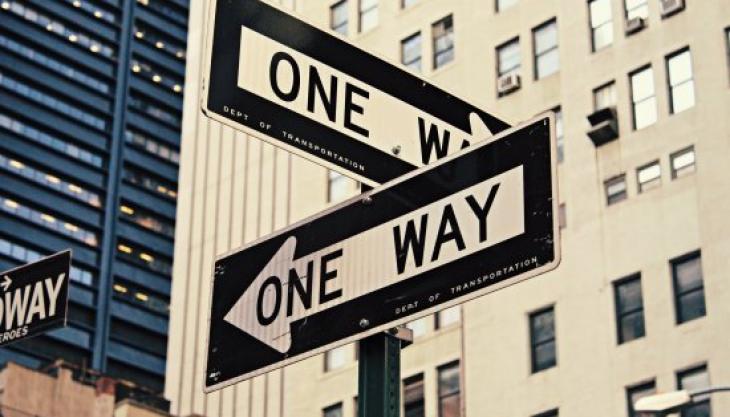Is Debt Relief Better for You Than Greensboro Bankruptcy?
Submitted by Rachel R on Wed, 12/20/2017 - 8:53am

Which path is best for you?
Image by Brendan Church via Unsplash
Debt can get out of control faster than you might realize. For most people, overwhelming debt comes after a significant life event like divorce, accident, illness, or prolonged unemployment. Life doesn’t always go according to plan and it can be difficult to dig yourself out of a financial dilemma. If you can’t get out of the predicament without intervention, you may be considering a debt relief program versus Greensboro bankruptcy, but which is better for your financial future? Here’s a look at the available options and how they can benefit you.
Choosing Chapter 7 bankruptcy
One option for Greensboro bankruptcy is filing Chapter 7. Also known as a liquidation bankruptcy, Chapter 7 allows you to get rid of unsecured debt like medical bills and credit cards in full within just a few months. Signature loans not tied to collateral may also be discharged completely, as can older utility bills and some past-due and aged income taxes (if they qualify).
Although student loans are unsecured debt, these are tougher to discharge in bankruptcy. You must file a separate legal action called an Adversary Proceeding and prove that paying the college debt would cause you “undue hardship.” You can qualify for Chapter 7 bankruptcy despite your income level so long as you can show that your debt outweighs your ability to pay.
One disadvantage of filing Chapter 7 bankruptcy is that it may affect your assets. If you own a home and are current on the mortgage, you can shield equity (to a certain extent) and keep your home. The same goes for your vehicle. If you’re behind on your secured debt like a mortgage or vehicle loan, you may not be able to salvage it while also using Chapter 7 to shed debt.
Choosing Chapter 13 bankruptcy
Another option for Greensboro bankruptcy is Chapter 13. This type of bankruptcy sets you up on a repayment plan to catch up on past-due balances on secured debt like your mortgage and auto loan. Chapter 13 is ideal for people with a steady stream of income and who earn enough to pay their current payments on secured debt plus installments on past-due balances.
With Chapter 7, you can be free of debt in three to four months, but a Chapter 13 bankruptcy takes three to five years to complete. One advantage of Chapter 13 over Chapter 7 is that you can safeguard most assets. Chapter 13 can stop foreclosure on your home and repossession on your vehicle while also reducing the amount you’ll pay on credit cards and medical bills.
One downside to Chapter 13 is that it’s a lengthy plan that requires commitment and dedication because you’ll have to live on a strict budget to afford your repayment plan. The upsides can greatly outweigh this, though, if you get to save your home and auto and get back on track financially without losing any assets.
Choosing debt relief
In contrast to bankruptcy, debt relief programs involve negotiating with your creditors to pay a smaller sum to settle your debt. In most cases, consumers hire a debt settlement company to negotiate on their behalf. The biggest upside to opting for debt relief is that there is no automatic penalty to your credit score for participating in a program. But the relief you get isn’t certain.
The downside to debt relief programs is that you must be delinquent for your creditors to come to the negotiation table. If you’re current on your debt, they have no incentive to lower what you owe. That means you’ll have to stop paying bills and your credit score will drop as a result. Another potential issue is that there is no guarantee that creditors will agree to reduce your debt.
Debt relief can be costly and the outcome is uncertain. But with Chapter 7 and Chapter 13, you know how much it will cost and the results you’ll see when it’s done. To find out about the benefits of bankruptcy versus debt relief, speak to a well-reviewed local bankruptcy lawyer. Call +1-833-627-0115 to contact the Law Offices of John T. Orcutt and schedule a free Greensboro bankruptcy consultation at one of our convenient locations in Raleigh, Durham, Fayetteville, Wilson, Greensboro or Wilmington.
Debts Hurt! Got debt? Need help? Get started below!
Serving All of North Carolina
- Bankruptcy Attorneys Raleigh NC (North)
- Bankruptcy Attorney Fayetteville NC
- Bankruptcy Attorney Durham NC
- Bankruptcy Attorneys Wilson NC
- Bankruptcy Attorneys Greensboro NC
- Bankruptcy Attorneys Southport NC
- Bankruptcy Attorneys Wilmington NC
Bankruptcy Attorneys Raleigh NC (North)
6616 Six Forks Rd #203 Raleigh, NC 27615 North Carolina
Tel: (919) 847-9750

Bankruptcy Attorney Fayetteville NC
2711 Breezewood Ave Fayetteville, NC 28303 North Carolina
Tel: (910) 323-2972

Bankruptcy Attorney Durham NC
1738 Hillandale Rd Suite D Durham, NC 27705 North Carolina
Tel: (919) 286-1695


Bankruptcy Attorneys Greensboro NC
2100 W Cornwallis Dr. STE O Greensboro, NC 27408 North Carolina
Tel: (336) 542-5993

Bankruptcy Attorneys Southport NC
116 N Howe St. Suite A Southport, NC 28461 North Carolina
Tel: (910) 218-8682

Bankruptcy Attorneys Wilmington NC
116 N. Howe Street, Suite A Southport, NC 28461 North Carolina
Tel: (910) 447-2987
